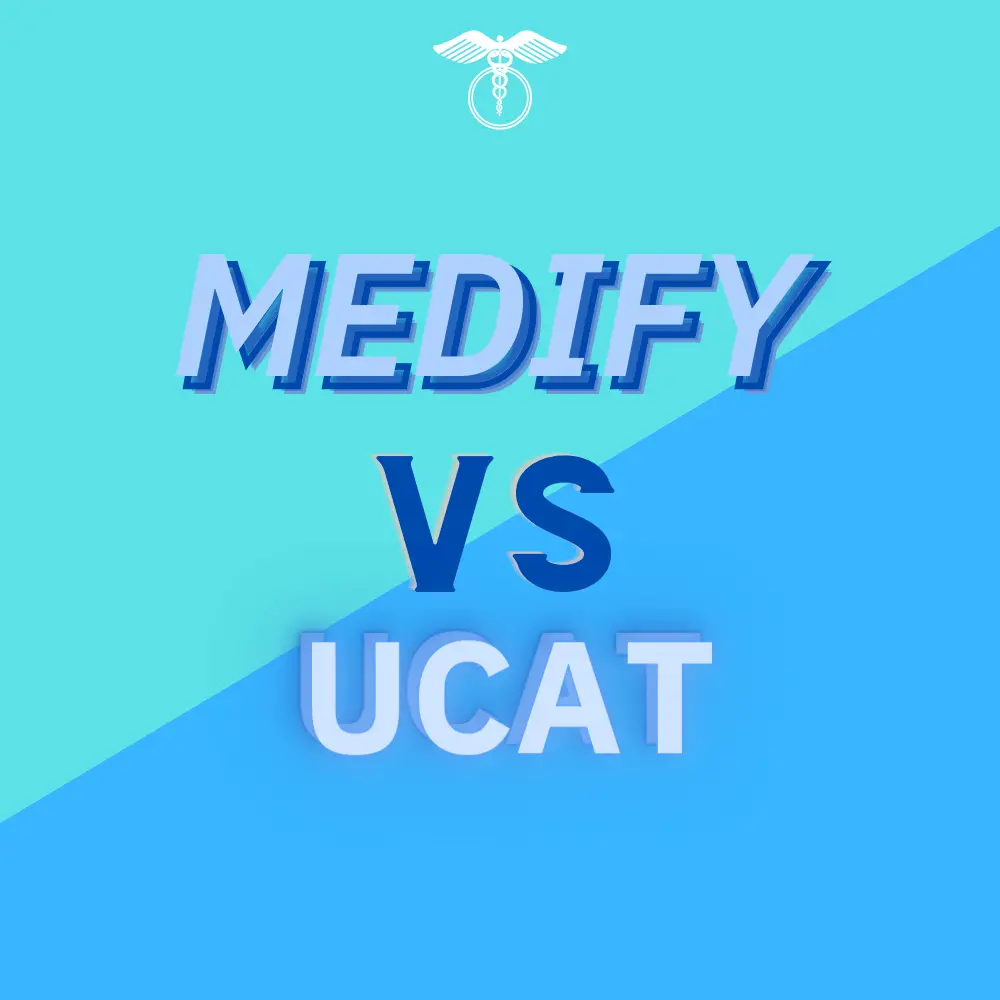Medify has amazing UCAT and BMAT resources geared towards students hoping to study medicine or dentistry in the future.
Their BMAT resources are superb, however many students believe their UCAT question bank may not be true to the actual UCAT consortium questions.
This post tries to answer the question of whether medify questions are accurate and which questions are most accurate.
Review of their UCAT Subtests
Verbal Reasoning
It seems for verbal reasoning, medify has done a good job of representing each question type accurately.
Their “true, false, can’t tell” questions and “appropriate answer” questions are exactly what you’d expect in the real exam!
In addition, the passage comprehension, skim reading, and time management is exactly what is needed in the real exam, and all these can be practised using medify questions!
The only criticism is that passage length seems to be much longer on average in the Medify questions when compared to UCAT official exams.
This gives the impression that you must read long passages to get the correct answer, whereas in the actual exam passages could be a short is 60 – 100 words.
This isn’t really a shortcoming, as if anything, you are practising more skim reading and time management.
The only thing is that your score may be mismatched from the real thing since passage length can either hurt or improve your score significantly.
Mark’s tends to be higher in medify, likely because longer passage lengths are overcompensated for by easier questions.
Decision Making
The decision-making section is made up of several question types.
I find is a good job of representing each question type accurately, Whilst giving you an accurate reports of how well you are doing in each of these question types.
This is incredibly powerful since you are actively reviewing your week points, whilst still practising how to approach each question with your own style.
Of course time management is important, and medify gives you the opportunity to practice managing your time, triaging questions, and stimulating real decision making mocks.
It seems medify decision making is on par with what is expected in the real exam!
There is however often a split consensus and depending on whether you’re good at medify style of DM, you may find medify mocks easier or harder than the real thing.
In general it seems they are on par, and If anything, medify mocks are a little harder, and may underestimate your score.
Abstract Reasoning
Abstract reasoning is on the things students struggle with the most, (along with verbal reasoning), but soon get to grips with it as practice goes on.
Medify mocks accurately demonstrate each question type that comes up, and provides thousands of practice questions to help students familiarise themselves with common patterns that may come up.
Students often fall into the trap of checking for the same sequences such as counting and looking for symmetry, however medify forces students to look for more abstract patterns and test many sequences.
The downside of this is that questions often seem much harder, And it feels as if there are thousands of patterns to remember.
This however is not the case in the real exam, And often questions are much easier to find sequences.
This means medify over prepares you which may actually work against your favour since you will spend a lot of time trying to find complicated patterns.
In general, it seems medify abstract reasoning questions are harder than what you may expect in the real thing.
Quantitative Reasoning
From first glance it may seem quantitative reasoning maybe the hardest subtest to score highly, especially if you’re not mathematically inclined.
The practice question bank on the official UCAT consortium website has incredibly tricky questions that pushes this myth.
In actuality the real exam questions are much more manageable.
Medify demonstrates this nicely, and their QR question bank is quite accurate to the real exam. Some questions are a little bit harder, and some a little easier than the real thing.
On the whole, medify has an accurate quantitative reasoning question bank, however some consider their questions a little too easy.
As mentioned before, the actual QR exam IS easy, and therefore medify is right to make their questions slightly easier to be more representative of the real thing.
Situational Judgement
Situational judgement is one of the few UCAT subtests with partial marking.
You also don’t get a score, instead a band.
This is test in my personal experience is the most accurately represented on Medify.
I was able to go from a band 3 to band 1 using Medify questions and reading all their answer explanations.
Medify mock scores were accurate when compared to the scores from the real exam, and the question styles were very representative.
Medify did a good job on their SJT section and it is highly recommended!
Summary
In general, Medify has done a superb job creating a practice system by which aspiring medical students can practice for entry exams in advance of the real thing!
This has allowed thousands of pupils to gain access to medicine, who were previously incapable of entry!
However Medify can be quite pricey depending on how long it is purchased for!
It definitely beats highly expensive preparatory courses though!
So if you’re able, get Medify for 3 months and practice for a couple of hours 3-5 times a week and you’ll be ok.
Alternatively, you can study with free resources, and borrow Library books about the UCAT for free, then either purchase Medify for the final month, or rely on your free practice!
Let us know what you think of medify mocks in the comment section and your experiences with their question bank!
Also let us know how you score, and whether you believe you can perform highly with only free resources!

